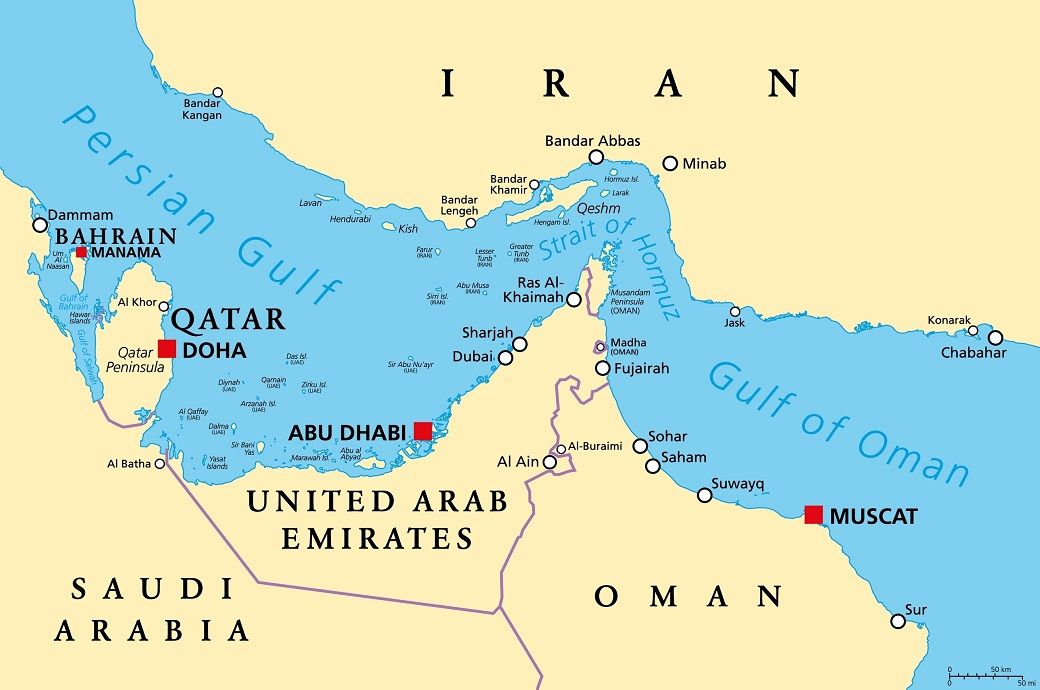
Tehran (IRAN) – In a bold response to recent US airstrikes on Iran’s nuclear sites, the Iranian parliament has approved a motion to close the Strait of Hormuz. This crucial waterway handles nearly 20% of the world’s oil supply. The final decision now rests with the Supreme National Security Council, Iran’s highest security authority.
Iranian Parliament Lawmakers Respond to International Silence
Senior lawmaker Esmaeil Kowsari confirmed on Sunday that parliament reached a consensus. He emphasized that the move is a reaction to US aggression and global inaction.
“The parliament has come to the conclusion that it should close the Hormuz Strait, but the final decision lies with the Supreme National Security Council,” Kowsari stated.
The vote follows airstrikes that targeted Iran’s nuclear infrastructure, including key sites at Natanz, Fordow, and Isfahan.
Iranian Parliament: Why the Strait of Hormuz Matters
The Strait of Hormuz connects the Persian Gulf to the Arabian Sea and serves as a lifeline for the global energy market. About 17–18 million barrels of oil, or 20% of global oil trade, pass through the narrow channel daily. It is also a vital route for liquefied natural gas (LNG), especially from Qatar, one of the world’s top LNG exporters.
Major oil exporters such as Saudi Arabia, Iran, Iraq, UAE, and Kuwait rely on the strait to ship crude. Analysts warn that any disruption could trigger an 80% spike in oil prices within a week.

Nuclear Facilities Under Attack
The US and Israel launched coordinated airstrikes on Iran’s nuclear infrastructure beginning June 13, 2025. According to Mehr News Agency, Iran had already evacuated personnel and moved nuclear materials from the targeted sites.
Here’s a look at Iran’s main nuclear sites:
- Natanz: Iran’s largest uranium enrichment center, capable of holding 50,000 centrifuges.
- Fordow: A fortified underground facility enriching uranium up to 60%.
- Isfahan: Iran’s biggest nuclear research site, with multiple reactors and production plants.
IAEA’s Position on Iran’s Nuclear Program
The International Atomic Energy Agency (IAEA) told Sky News that while Iran enriches uranium beyond civilian use, it has found no evidence of a systematic push for nuclear weapons. Still, Iran’s failure to meet its safeguards obligations has fueled international concern.

Israel’s Operation Rising Lion
Israel justifies its strikes as part of Operation Rising Lion, aimed at preventing Iran from acquiring nuclear weapons. The attacks have reportedly killed hundreds and damaged critical infrastructure.
In retaliation, Iran has fired hundreds of missiles and drones at Israeli targets. The escalating conflict has brought the region to the brink of a wider war.
Global Repercussions Loom
If the Strait of Hormuz is officially closed, it could cripple global energy supplies. Experts warn that multinational companies would run out of fuel within days. Most vulnerable are China and other Asian economies, which heavily rely on Middle Eastern oil and gas.
Iran’s decision to escalate tensions by threatening to close the Strait of Hormuz marks a turning point in the crisis. With diplomatic channels stalled and military actions intensifying, the risk of a broader regional conflict is now higher than ever.
Iran Parliament: Majles Shoraye Eslami (Islamic Parliament of Iran)
Numan Kurtulmuş Re-Elected Speaker of Turkish Parliament
Iran Parliament Considers Withdrawing from Nuclear Non-Proliferation Treaty